
Kibira National Forest: The Lush Jewel of Burundi
Nestled in the northwestern part of Burundi, Kibira National Forest is a sprawling expanse of lush, tropical rainforest. Covering over 400 square kilometers, this forest is part of the larger Congo-Nile Divide region, which is known for its rich biodiversity and unique ecosystems. The forest is home to a variety of wildlife including chimpanzees, colobus monkeys, and hundreds of bird species, making it a paradise for nature lovers and bird watchers alike. As you venture into Kibira National Forest, you'll be greeted by a serene and tranquil atmosphere, with the sounds of rustling leaves and chirping birds accompanying you on your journey. The forest is crisscrossed by numerous trails, suitable for both novice and experienced hikers. A guided tour can provide valuable insights into the local flora and fauna, as well as the cultural significance of the forest to the surrounding communities. In addition to its natural beauty, Kibira National Forest offers a glimpse into the traditional lifestyles of the local people. Many communities living on the forest's fringes rely on its resources for their daily needs, and visitors can learn about sustainable practices and the importance of conservation. Whether you're seeking adventure, relaxation, or a deeper understanding of nature, Kibira National Forest is a destination that promises a memorable and enriching experience.
Local tips in Kibira National Forest
- Hire a local guide for a richer experience and to ensure you don't miss any hidden gems.
- Wear comfortable hiking shoes and bring insect repellent to stay comfortable during your visit.
- Respect the local customs and traditions when interacting with communities around the forest.
- Visit during the dry season (June to September) for easier trekking and better wildlife sightings.
Kibira National Forest: The Lush Jewel of Burundi
Nestled in the northwestern part of Burundi, Kibira National Forest is a sprawling expanse of lush, tropical rainforest. Covering over 400 square kilometers, this forest is part of the larger Congo-Nile Divide region, which is known for its rich biodiversity and unique ecosystems. The forest is home to a variety of wildlife including chimpanzees, colobus monkeys, and hundreds of bird species, making it a paradise for nature lovers and bird watchers alike. As you venture into Kibira National Forest, you'll be greeted by a serene and tranquil atmosphere, with the sounds of rustling leaves and chirping birds accompanying you on your journey. The forest is crisscrossed by numerous trails, suitable for both novice and experienced hikers. A guided tour can provide valuable insights into the local flora and fauna, as well as the cultural significance of the forest to the surrounding communities. In addition to its natural beauty, Kibira National Forest offers a glimpse into the traditional lifestyles of the local people. Many communities living on the forest's fringes rely on its resources for their daily needs, and visitors can learn about sustainable practices and the importance of conservation. Whether you're seeking adventure, relaxation, or a deeper understanding of nature, Kibira National Forest is a destination that promises a memorable and enriching experience.
When is the best time to go to Kibira National Forest?
Iconic landmarks you can’t miss
Gishora Drum Sanctuary
Discover the rhythmic heart of Burundi at Gishora Drum Sanctuary, a UNESCO site celebrating traditional drumming and cultural heritage.
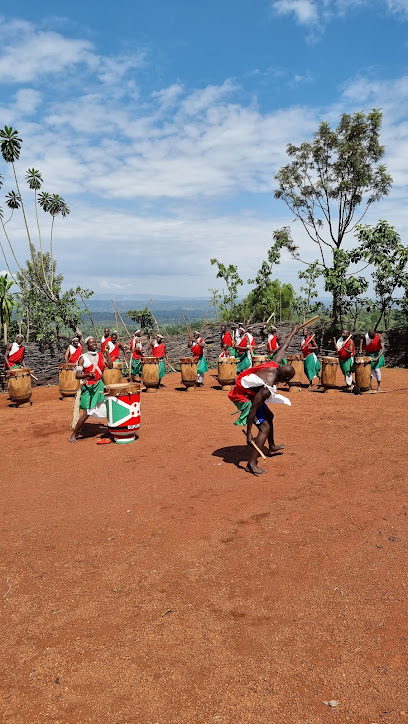
Kibira National Park
Explore the lush landscapes and rich biodiversity of Kibira National Park, a hidden gem in Burundi perfect for adventure and nature lovers.
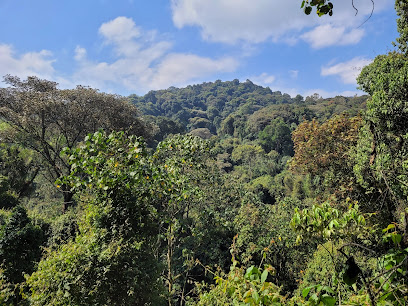
Bururi Forest Nature Reserve
Explore the breathtaking Bururi Forest Nature Reserve, an ecological haven filled with diverse wildlife, lush greenery, and serene walking trails in Burundi.
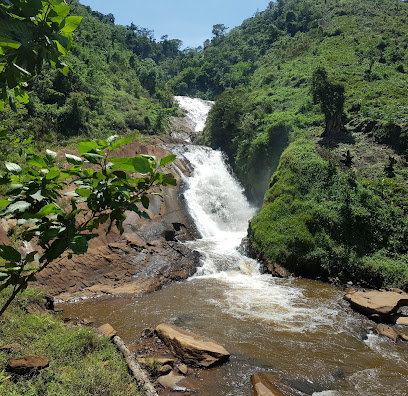
Essential places to dine
Le Café Gourmand
Discover Le Café Gourmand: A charming café in Bujumbura serving exquisite pastries and rich coffee amidst a warm atmosphere.
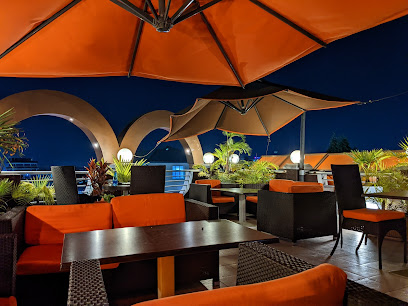
Waka Waka
Experience authentic Italian cuisine at Waka Waka in Bujumbura - where delicious food meets warm hospitality.
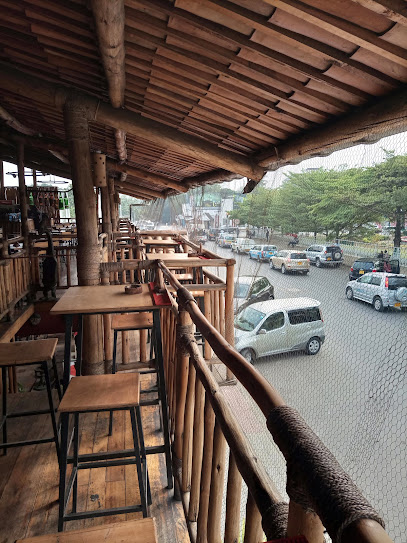
Vinothèque ZILLIKEN
Experience the finest wines and exquisite dining at Vinothèque ZILLIKEN in Bujumbura – where every sip tells a story.
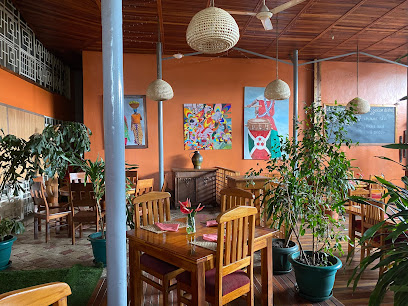
Harrys Grill House
Discover Bujumbura’s vibrant flavors at Harry’s Grill House, where barbecue meets local charm in an unforgettable dining experience.
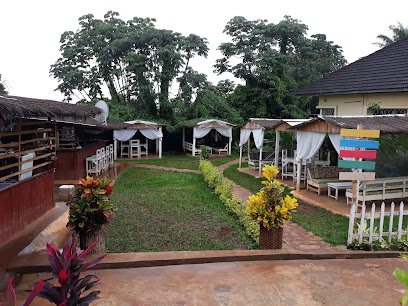
Pasta comedia
Experience authentic Italian dining at Pasta Comedia in Bujumbura – where every dish tells a story.
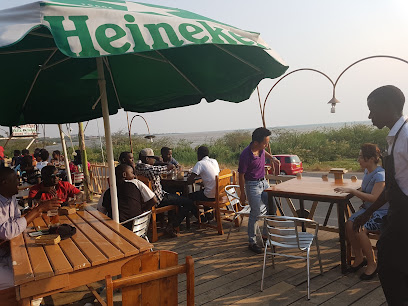
Belvedere Restaurant
Discover the taste of Burundi at Belvedere Restaurant, where stunning views meet exquisite culinary delights.
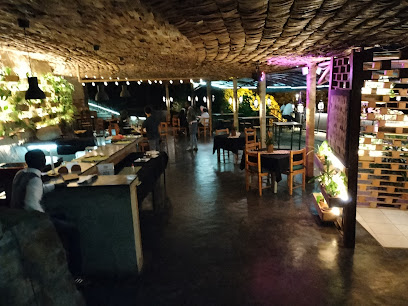
Restaurant Chez Orphée
Discover the rich flavors of Burundi at Restaurant Chez Orphée in Bujumbura – where tradition meets modern cuisine.
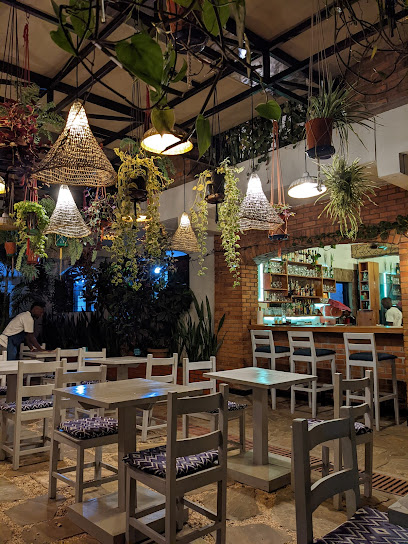
Kibira Park Lodge
Experience nature's beauty at Kibira Park Lodge – your tranquil retreat near Kibira National Park.
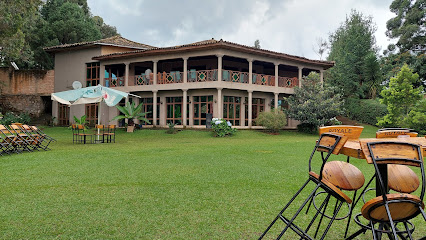
KEZAMIA Restaurant
Discover the flavors of Burundi at KEZAMIA Restaurant, where local cuisine meets nature's beauty in Bujumbura.
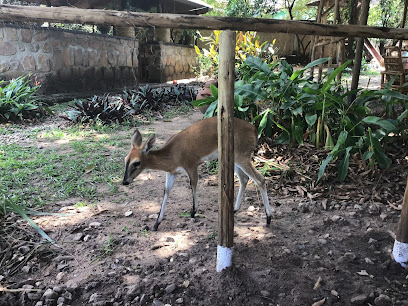
Paparazzi Restaurant
Experience family-friendly dining at Paparazzi Restaurant in Bujumbura, offering delicious meals and a welcoming atmosphere for all ages.
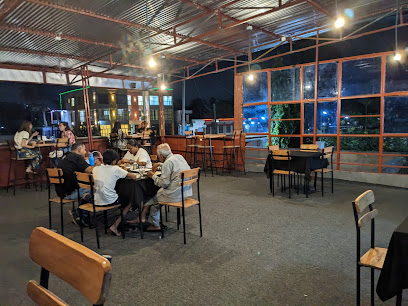
Eden Garden Resort
Discover Eden Garden Resort: A stunning restaurant in Bujumbura offering exquisite local cuisine amidst lush gardens and tranquil settings.
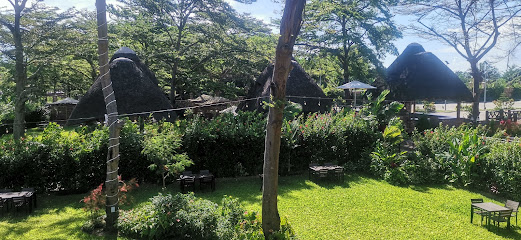
Restaurant Oasis
Experience exquisite flavors at Restaurant Oasis in Bujumbura - where local ingredients meet global culinary traditions.
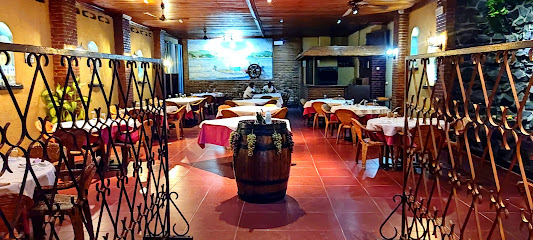
Restaurant Tanganyika
Experience exquisite dining by Lake Tanganyika at Restaurant Tanganyika - where local flavors meet stunning views.
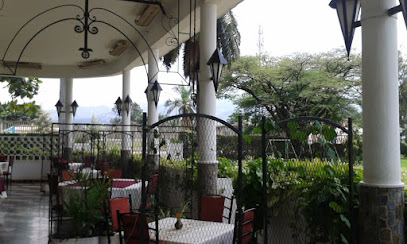
Ku Kigabiro Event
Experience authentic Burundian cuisine at Ku Kigabiro Event in Bujumbura - where every meal tells a story.
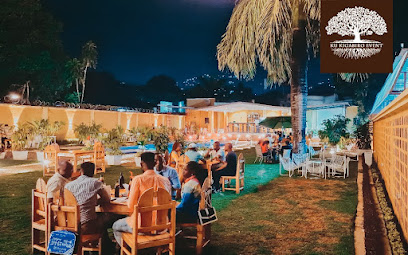
Restaurant La Comète
Discover the unique flavors of Burundi at Restaurant La Comète – where culinary excellence meets warm hospitality in Bujumbura.
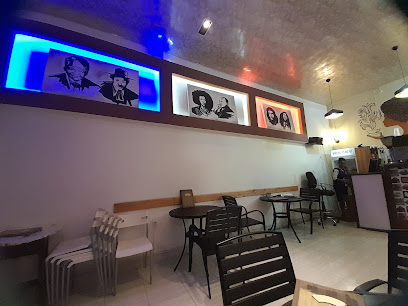
Markets, malls and hidden boutiques
Kibira National Park
Explore the lush rainforests and diverse wildlife of Kibira National Park, a serene oasis in Burundi perfect for nature lovers and adventurers.
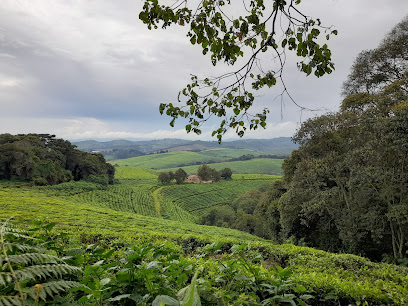
Kilakitu
Experience the vibrant shopping and dining culture at Kilakitu Shopping Mall in Bujumbura, the perfect destination for tourists exploring Burundi.

Essential bars & hidden hideouts
Arena Restaurant Lounge Bar
Experience the vibrant culinary scene at Arena Restaurant Lounge Bar in Bujumbura, where local flavors meet international cuisine in a lively atmosphere.
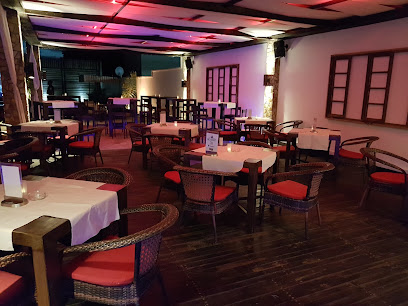
Lacosta Beach
Discover the charm of Lacosta Beach, a serene bar by Lake Tanganyika in Bujumbura, perfect for relaxation and stunning sunset views.
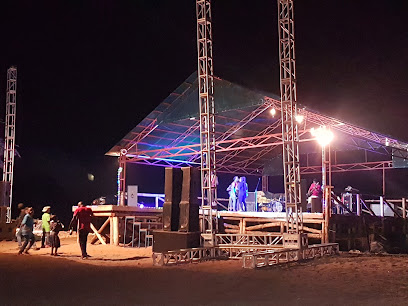
Inyambo Restaurant Bar
Experience the best of local and international cuisine at Inyambo Restaurant Bar in Bujumbura, a delightful culinary escape.
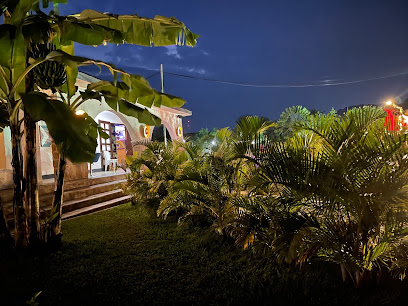
Nobel Kiriri
Discover the flavors of Bujumbura at Nobel Kiriri, a vibrant grill restaurant serving delicious grilled dishes in a lively atmosphere.
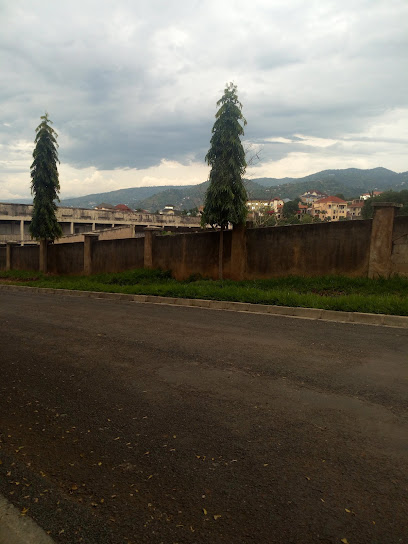
Kiriri Bar (KB)
Discover the vibrant atmosphere of Kiriri Bar in Bujumbura, where locals and tourists unite over refreshing drinks and lively conversations.

KiKi Club Lounge Bar
Discover the lively nightlife at KiKi Club Lounge Bar in Bujumbura, where great music and a vibrant atmosphere await you.

HERITAGE BAR & RESTAURANT
Discover the vibrant flavors of Bujumbura at Heritage Bar & Restaurant, where local culture meets culinary delight in a cozy atmosphere.
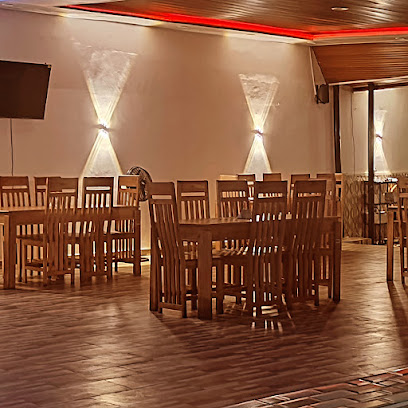
Zanzi Bar
Discover the vibrant nightlife of Bujumbura at Zanzi Bar, where delightful drinks and a lively atmosphere await.
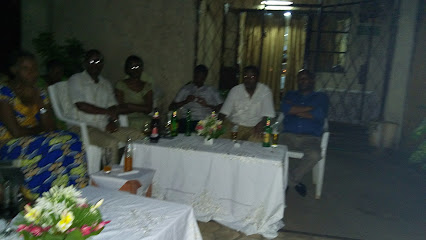
Le Baron
Discover the lively nightlife at Le Baron in Bujumbura, offering a unique blend of local drinks, vibrant atmosphere, and unforgettable experiences.
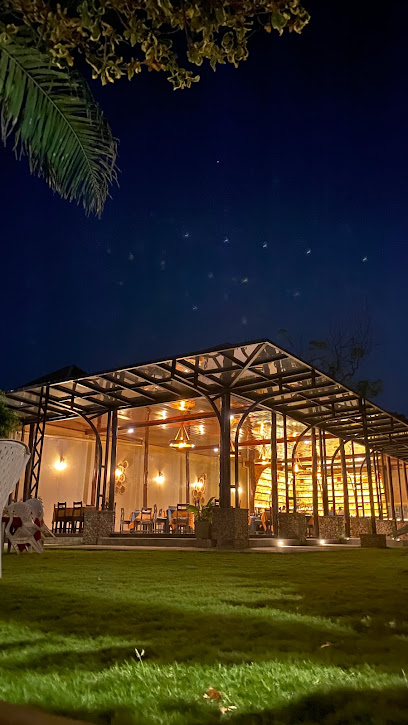
Kiriri Light Bar
Discover Kiriri Light Bar in Bujumbura for a delightful mix of local cuisine, refreshing drinks, and vibrant atmosphere.
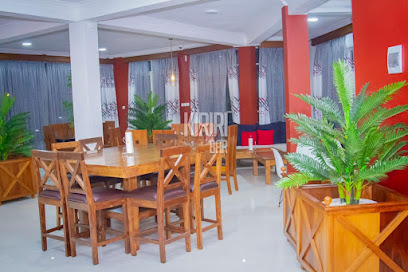
BEST GARDEN RESTO-BAR
Experience the perfect blend of nature and nightlife at BEST GARDEN RESTO-BAR in Bujumbura, where every visit is a refreshing escape.

Kiboko Foods and Drinks
Discover the vibrant flavors of Burundian cuisine at Kiboko Foods and Drinks, the ultimate grill destination in Bujumbura.
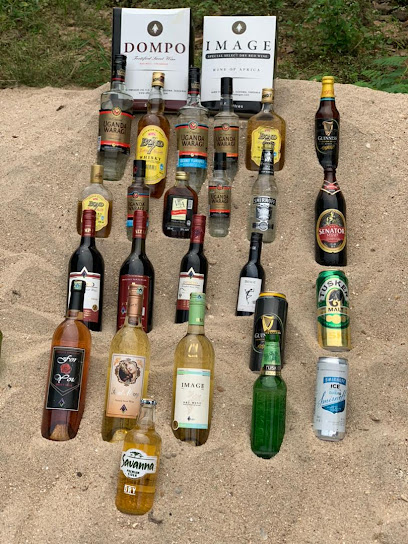
Kukigabiro Resto-Bar
Discover the flavors of Burundi at Kukigabiro Resto-Bar, where local cuisine meets vibrant culture in the heart of Bujumbura.

Kigabiro Snack-Bar (Resto)
Discover the vibrant atmosphere and local flavors at Kigabiro Snack-Bar in Bujumbura - a must-visit for an authentic experience.
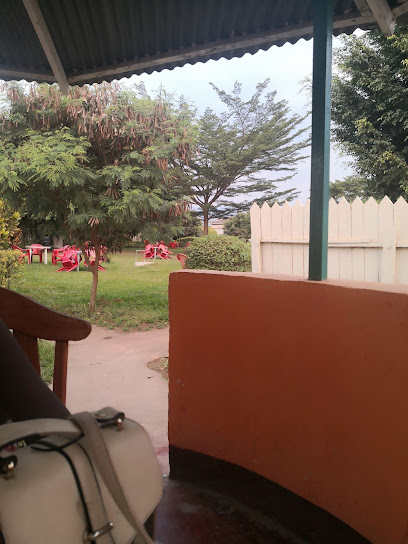
Local Phrases about Kibira National Forest
-
- HelloAmakuru
[ah-mah-koo-roo] - GoodbyeKwaheri
[kwa-heh-ree] - YesEgo
[eh-go] - NoOya
[oh-yah] - Please/You're welcomeKuhamya
[koo-hahm-yah] - Thank youMurakoze
[moo-rah-koh-zeh] - Excuse me/SorryMwihangane
[mwee-hahn-gah-neh] - How are you?Amahoro?
[ah-mah-hoh-roh?] - Fine. And you?Ni meza. Na wewe?
[nee meh-zah. nah weh-weh?] - Do you speak English?Mwaba mutariki Igitabo c'ubwenge?
[mwa-bah moo-tah-ree-kee ee-gee-tah-boh c'oo-bwehn-geh?] - I don't understandSinumva
[see-noom-vah]
- HelloAmakuru
-
- I'd like to see the menu, pleaseNifise igikoresho, kubanza
[nee-fee-seh ee-gee-koh-reh-shoh, koo-bahn-zah] - I don't eat meatSimbiyako inyama
[see-mbee-yah-koh ee-nyah-mah] - Cheers!Amahoro!
[ah-mah-hoh-roh!] - I would like to pay, pleaseNifuza kugurisha, kubanza
[nee-foo-zah koo-goo-ree-shah, koo-bahn-zah]
- I'd like to see the menu, pleaseNifise igikoresho, kubanza
-
- Help!Mwakoze!
[mwa-koh-zeh!] - Go away!Bibuka!
[bee-boo-kah!] - Call the Police!Bereka Polisi!
[beh-reh-kah poh-lee-see!] - Call a doctor!Bereka daktari!
[beh-reh-kah dahk-tah-ree!] - I'm lostNshaka
[n-shah-kah] - I'm illNkora
[n-koh-rah]
- Help!Mwakoze!
-
- I'd like to buy...Nifura...
[nee-foo-rah...] - I'm just lookingNshaka kugarukira
[n-shah-kah koo-gah-roo-kee-rah] - How much is it?Ni iki cyane?
[nee ee-kee chyah-neh?] - That's too expensiveIyo ni byinshi
[ee-yoh nee bee-yin-shee] - Can you lower the price?Wibuka gutanga isura?
[wee-boo-kah goo-tahn-gah ee-soo-rah?]
- I'd like to buy...Nifura...
-
- What time is it?Saa ngapi?
[sah-ah ngah-pee?] - It's one o'clockNi saa ya kane
[nee sah-ah yah kah-neh] - Half past (10)Saa munani
[sah-ah moo-nah-nee] - MorningIgisibo
[ee-ghee-see-boh] - AfternoonIcyumweru
[ee-choom-weh-roo] - EveningIgihe cya saha
[ee-ghee-heh chyah sah-hah] - YesterdayEjo
[eh-joh] - TodayEjo
[eh-joh] - TomorrowEjo
[eh-joh] - 1Rimwe
[ree-mweh] - 2Kabiri
[kah-bee-ree] - 3Gatatu
[gah-tah-too] - 4Kane
[kah-neh] - 5Gatanu
[ga-tah-noo] - 6Gatandatu
[gah-tahn-dah-too] - 7Kumwe
[koo-mweh] - 8Nyanya
[nyah-nyah] - 9Icyenda
[ee-chee-yen-dah] - 10Icyumweru
[ee-choom-weh-roo]
- What time is it?Saa ngapi?
-
- Where's a/the...?Iki ni heza...?
[ee-kee nee heh-zah...?] - What's the address?Adiresi ni iki?
[ah-dee-reh-see nee ee-kee?] - Can you show me (on the map)?Wibuka kunyereza kuri mape?
[wee-boo-kah koo-nyeh-reh-zah koo-ree mah-peh?] - When's the next (bus)?Iki gihe cyiza iki?
[ee-kee gee-heh chee-zah ee-kee?] - A ticket (to ....)Ikipe (kuri ....)
[ee-kee-peh koo-ree ....]
- Where's a/the...?Iki ni heza...?
History of Kibira National Forest
-
Long before modern borders were drawn, the Kibira National Forest was home to the Batwa people, also known as the Twa or Pygmies. These indigenous hunter-gatherers have lived in the forests of the Great Lakes region for millennia. The dense forest provided them with shelter, food, and medicinal plants. Archaeological evidence, such as ancient tools and pottery, suggests their presence in the area for thousands of years.
-
During the late 19th and early 20th centuries, Burundi, including the Kibira National Forest, fell under German colonial rule. The Germans were drawn to the region's natural resources and began exploiting the forest for timber and other products. They also initiated the first efforts to map and study the rich biodiversity of the area. This period marked the beginning of significant ecological changes in the forest due to external influences.
-
After World War I, Burundi came under Belgian administration as part of the League of Nations mandate. The Belgians continued the exploitation of natural resources but also recognized the importance of conservation. In 1933, the colonial administration declared parts of Kibira as a protected area. This was one of the first steps towards formal conservation in Burundi, aiming to preserve the unique flora and fauna of the forest.
-
Burundi gained independence from Belgium in 1962. The newly formed government continued to recognize the ecological importance of Kibira. In 1980, the forest was officially designated as Kibira National Park. This designation aimed to protect the forest's biodiversity, including its many endemic species, and to promote sustainable tourism. The park covers an area of about 400 square kilometers, straddling the Congo-Nile Divide.
-
Kibira National Forest holds immense cultural significance for the local communities. The forest is considered sacred and is the site of various traditional rituals and ceremonies. The local people believe that the spirits of their ancestors reside in the forest, and they often perform rituals to honor these spirits, seek blessings, or request protection. These cultural practices have helped in preserving the forest and maintaining its ecological balance.
-
In recent years, Kibira National Forest has faced numerous challenges, including deforestation, poaching, and illegal logging. Various non-governmental organizations and international bodies have been working alongside the Burundian government to address these issues. Efforts include community-based conservation programs, reforestation projects, and the promotion of eco-tourism. These initiatives aim to ensure that Kibira remains a vital ecological and cultural treasure for future generations.
Kibira National Forest Essentials
-
Kibira National Forest is located in the northwestern part of Burundi, near the border with Rwanda. The nearest international airport is Bujumbura International Airport, approximately 80 kilometers away. From Bujumbura, you can hire a taxi or arrange for a private transfer to Kibira National Forest. The journey typically takes around 2 to 3 hours by road. Alternatively, you can take a bus from Bujumbura to the town of Muramvya, which is the closest town to the forest, and then hire a local taxi for the remaining distance.
-
Within Kibira National Forest, transportation options are limited due to the terrain and environmental conservation efforts. Hiking is the most common way to explore the forest. For longer distances, you can arrange for guided tours that include transportation. Local taxis and motorcycle taxis (boda-bodas) are available in nearby towns like Muramvya and Kayanza. Renting a car is an option, but it is advisable to use a four-wheel-drive vehicle due to the rough roads.
-
The official currency in Burundi is the Burundian Franc (BIF). Credit cards are not widely accepted in rural areas, including Kibira National Forest, so it is essential to carry cash. ATMs are available in larger towns like Bujumbura and Muramvya, but it is wise to withdraw sufficient cash before heading to the forest. Small denominations are useful for minor expenses and tips.
-
Kibira National Forest is generally safe for tourists, but it is essential to take standard precautions. Avoid walking alone at night and keep your belongings secure. Petty theft can occur, especially in crowded areas. While there are no specific high-crime areas targeting tourists within the forest, staying vigilant and aware of your surroundings is always advisable. Consult local guides for the safest routes and areas to visit.
-
In case of emergency, contact the local authorities or your tour guide immediately. The emergency number in Burundi is 112. Medical facilities are limited in the immediate vicinity of Kibira National Forest, so it is advisable to have travel insurance that covers medical emergencies. For minor health issues, carry a basic first aid kit and any necessary medications. The nearest well-equipped medical facilities are in Bujumbura.
-
Fashion: Do dress modestly, as Burundi is a conservative country. Lightweight, long-sleeved clothing is advisable to protect against insects and the sun. Avoid wearing flashy jewelry. Religion: Do respect local customs and traditions. If visiting religious sites, dress modestly and remove your shoes when entering. Public Transport: Do be respectful and considerate towards locals. Avoid eating or drinking on public transport. Greetings: Do greet people with a handshake. A polite greeting in French or Kirundi is appreciated. Eating & Drinking: Do try local dishes and accept food offerings graciously. Don't refuse hospitality, as it is considered impolite.
-
To experience Kibira National Forest like a local, consider hiring a local guide who can provide insights into the forest's flora, fauna, and cultural significance. Visit local markets in nearby towns like Muramvya to buy fresh produce and handmade crafts. Engage with locals to learn about traditional practices and stories related to the forest. Don't miss the chance to explore the forest's numerous trails, waterfalls, and scenic viewpoints. For a unique experience, participate in a traditional drumming session with local communities.
Nearby Cities to Kibira National Forest
-
Things To Do in Muramvya
-
Things To Do in Ngozi
-
Things To Do in Cibitoke
-
Things To Do in Bujumbura
-
Things To Do in Butare
-
Things To Do in Gitega
-
Things To Do in Kirundo
-
Things To Do in Karongi
-
Things To Do in Muyinga
-
Things To Do in Muhanga
-
Things To Do in Kibuye
-
Things To Do in Bururi
-
Things To Do in Rumonge
-
Things To Do in Nyamata
-
Things To Do in Kigali




